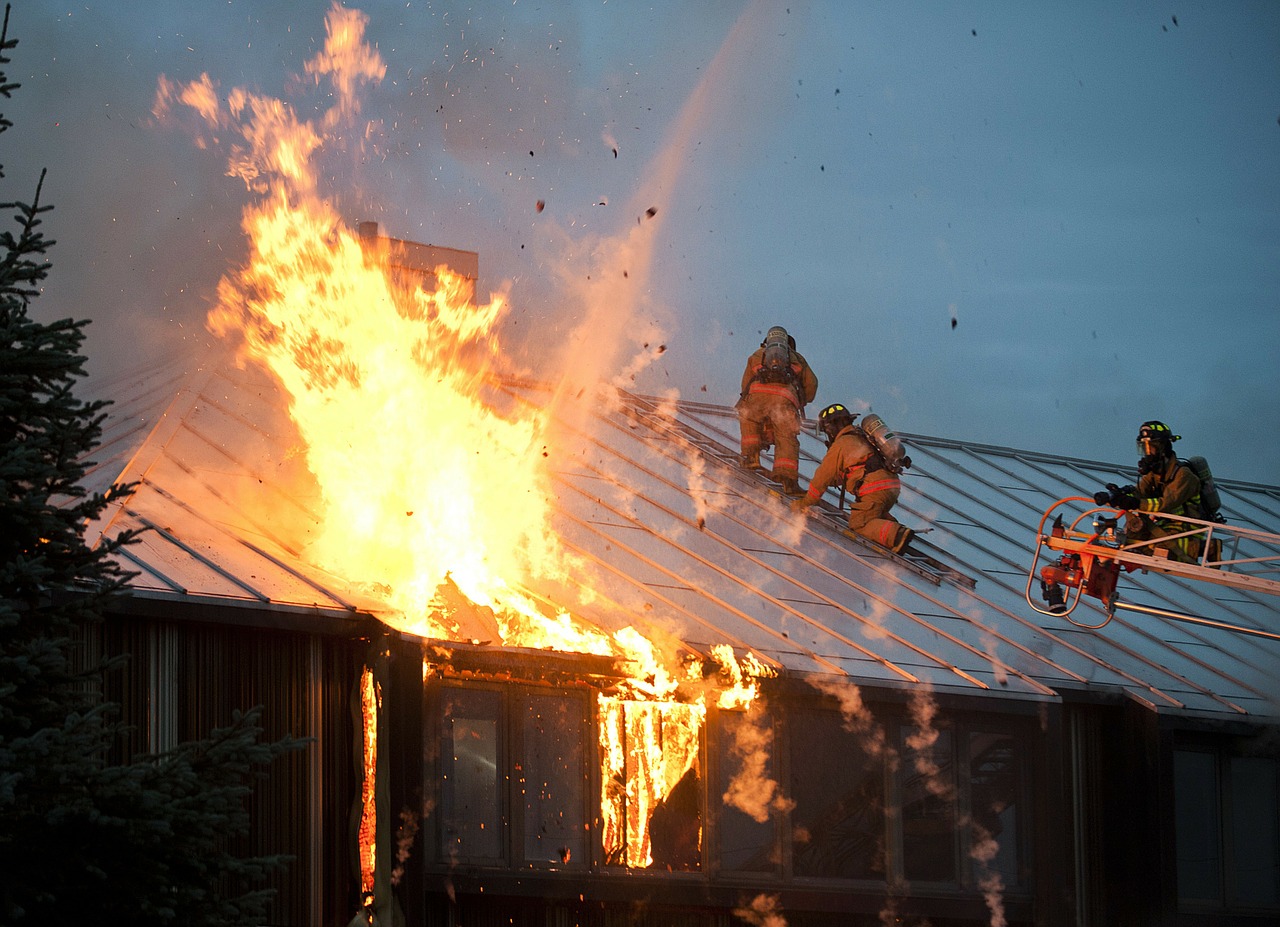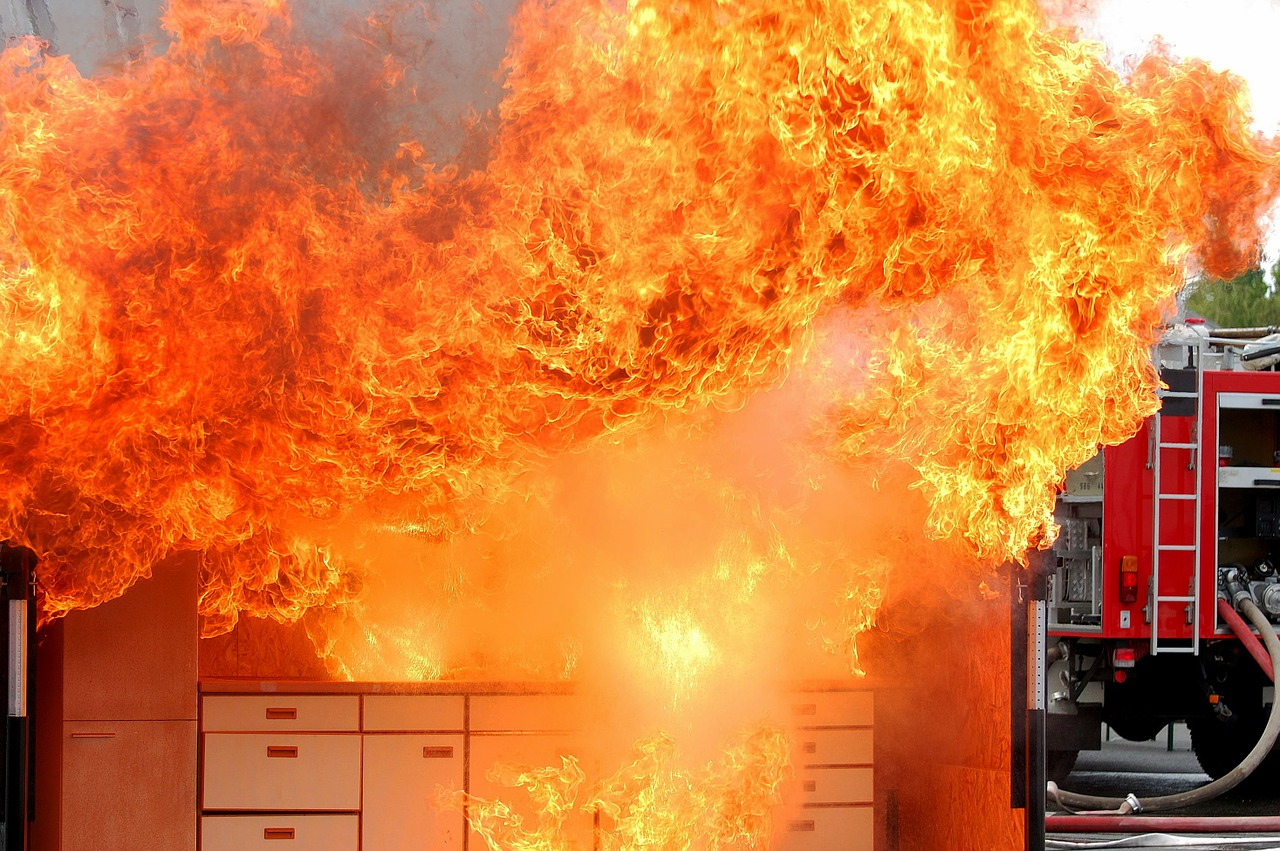Help prevent common household fires
 Using our claim data, we have developed a list of the most common causes of fire-related losses as well as some things you can do to help prevent them.
Using our claim data, we have developed a list of the most common causes of fire-related losses as well as some things you can do to help prevent them.
Faulty Wiring and Outlets Are One of the Top Causes of House Fires.
- Check the electrical cords throughout your home for signs of fraying, and replace all frayed wires.
- Do not pinch or cover electrical cords with items such as rugs.
- Be aware of the capacity of your home’s electrical system. Do not overload your circuits. If you have questions about your home’s electrical system, you may want to consult a licensed electrician.
- Understand the difference between surge protectors and power strips – both allow you to plug in multiple electronic devices, but only the surge protector will help protect these devices from a power spike. Use surge protectors to protect valuable electronic devices, such as computers and televisions.
Carelessness in the Kitchen May Also Lead to a House Fire.
- Never leave your pots or pans unattended on your stove.
- Keep a kitchen fire extinguisher readily available and know how to use it.
- Keep your stove and oven clean. Built up food splatter or grease can later ignite when the stove or oven is turned on for cooking.
- Read more tips to help prevent cooking fires, and what to do if one occurs.
Clothes Dryers are Another Common Source of House Fires.
- If you are installing your own dryer vent, follow the directions in the manufacturer’s installation instructions, using the recommended duct material. If you are unsure about how to properly install the vent, consider hiring a professional to do the installation.
- Clean out the dryer vent regularly.
- Clean out the lint filter after each load.
- Lint may also collect under and behind your dryer, so do not forget to clean these areas.
Alternative Heating Sources May Also Create a Fire Hazard.
- Avoid using an older space heater, as it may not have adequate safety features compared to newer units. When purchasing a new space heater, ensure it is UL Listed and pay attention to the safety features.
- Do not place a space heater near furniture, curtains or other objects that could easily catch fire.
- If you plan to install an alternative heating system, such as a wood or pellet stove, follow the instructions. If you are unsure about how to properly install the system, consider hiring a professional to do the installation.
- Before installing a wood or pellet stove, check to ensure it complies with the laws of your state and municipality.
Dirty Chimneys Also Pose a Fire Hazard.
- Have your chimney inspected annually by a Chimney Safety Institute of America (CSIA)-certified chimney sweep. Have a professional clean and repair the chimney as needed, especially before the cold months, when you will be using it frequently.
- Use seasoned wood only. Never burn green or damp wood.
- Never burn cardboard boxes, wrapping paper, trash or trees in your fireplace – these can all spark chimney fires.

 When thinking of the cause of a kitchen fire, it is common to think of cooking. But not all kitchen fires start because of cooking hazards. Non-cooking related fires commonly involve refrigerators, freezers or dishwashers. The following tips can help prevent non-cooking related fires from occurring in your kitchen.
When thinking of the cause of a kitchen fire, it is common to think of cooking. But not all kitchen fires start because of cooking hazards. Non-cooking related fires commonly involve refrigerators, freezers or dishwashers. The following tips can help prevent non-cooking related fires from occurring in your kitchen.